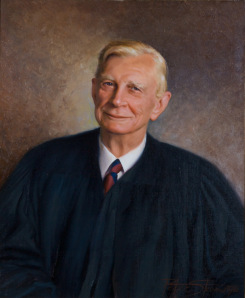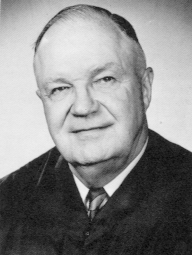Please visit the links on the left for additional information about our Inn. For any other questions, you may reach us at iansonhoffmaninnofcourt@gmail.com.


I'Anson Hoffman Inn of Court awarded Platinum Level Distinction In the American Inn of Court Achieving Excellence Program

In the 2014-15 Inn year, we reached Platinum level recognition for the first time on our first attempt. Since then, we have achieved Platinum level recognition each year. Our repeat achievement is due to the membership's hard work which has distinguished our Inn as a model of American Inn of Court best practices.
The Achieving Excellence program is designed to encourage effective practices in the five core competencies of Inn management. It is a tiered achievement-based program that recognizes activities in which Inns are already involved and builds on an Inn's successes. Each level recognizes an Inn's progress toward mastering these core competencies of Administration, Communications, Programs, Mentoring, and Outreach Activities.
Our Inn will be recognized in the Bencher, on the American Inn of Court website, and at the Celebration of Excellence event program which will be held at the Supreme Court later this year. In addition, a Certificate of Achievement will be presented to the Inn by our chapter relations director at an upcoming meeting.
Congratulations on achieving Platinum Level Distinction for the I'Anson Hoffman Inn of Court each year since 2014!
The I'Anson-Hoffman Inn of Court
No institution is complete without a documented history as the Institutional memory. This document is derived from the records of the Inn, the memories of its founders, and previous histories written by Judge William T. Prince and Morton H. Clark, Esquire. The author of this document is indebted to their efforts and the offerings of numerous present and former members of the Inn.
The I'Anson-Hoffman American Inn of Court was established by charter on May 1, 1987, in Norfolk, Virginia, as part of a nation-wide movement to emulate the British Inns of Court, for the purpose of promoting the goals of excellence, civility, professionalism and ethics in the legal profession. The founding members, a distinguished group of judges, lawyers, law professors and law students, as well as the Marshall-Wythe School of Law of the College of William & Mary, were committed to the goals of the American Inn of Court movement, particularly as they related to law students and those new to the profession.
The American Inns of Court Movement
The American Inns of Court concept was the product of a discussion in the late 1970's among the United States' members of the Anglo-American exchange of lawyers and judges, including United States Chief Justice Warren E. Burger and Chief Judge of the Ninth Circuit J. Clifford Wallace. The concept was based upon the admiration which members of the American legal profession held for the British Inns of Court.
The first Inn of Court was established in England in 1292 by King Edward I to provide housing for his barristers while they were trying cases in London. During the Middle Ages, the inns evolved into training centers for young lawyers. Today, there are four British Inns of Court: Inner Temple, Middle Temple, Lincoln's Inn and Gray's Inn. Each is organized and operated separately, with a coordinating council of the four Inns.
Chief Justice Burger invited Rex E. Lee (then Dean of the School of Law at Brigham Young University and later United States Solicitor General) and Dallin Oaks (then president of Brigham Young University and later Justice of the Utah Supreme Court) to test the idea.
At Lee's suggestion, United States District Court Judge A. Sherman Christensen, developed the idea into a feasible concept. The first American Inn of Court was founded in 1980 in Utah, and included law students from Brigham Young University. Within the next three years, additional American Inns formed in Utah, Mississippi, Hawaii, New York, and Washington, D.C.
In 1983, Chief Justice Burger created a committee of the Judicial Conference of the United States to explore whether the American Inn concept was of value to the administration of justice and, if so, whether there should be a national organization to promote, establish and assist American Inns, and promote the goals of legal excellence, civility, professionalism and ethics on a national level. The committee proposed the creation of the American Inns of Court Foundation, the Judicial Conference endorsed the concept, and in 1985 the American Inns of Court Foundation was formally organized, with the following goals:
- to unite a cross-section of the bench and bar into an educational forum for the promotion of excellence, professionalism and ethics in legal advocacy;
- to promote fellowship of the bar, the bench and the students of the law;
- to contribute to essential reforms and improvements in training and performance of legal advocates;
- to facilitate the transition of law students and young lawyers into the operation of our court system; and
- to preserve, foster and adapt for contemporary use in the United States the genius and strengths of the English Inns of Court and their "joy and zest in legal advocacy as a service worthy of constant effort and learning.
The Vision
At the time of the organization of the American Inns of Court Foundation, Chief Justice Burger was serving in the honorary position of Chancellor of the College of William &- Mary. In a conversation with Dr. Paul Verkuil, then President of the College and a law school graduate himself, Chief Justice Burger conveyed the enthusiasm he had for the fledgling American Inn of Court movement, and for the restoration of the high ideals of the legal profession and its image to the general public. President Verkuil shared the Chief Justice's vision with Dean Timothy J. Sullivan, of the Marshall-Wythe School of Law and successor to President Verkuil as President of the College of William & Mary.
Knowing the value of prominent leadership in the creation of a new organization, Dean Sullivan enlisted Professor Walter L. Felton, Jr. (now the Retired Chief Judge of the Virginia Court of Appeals), to approach his mentor, former United States Senator and law Dean, William B. Spong, Jr., for encouragement, ideas and eventual support for the formation of an Inn of Court. Senator Spong wisely suggested that Retired Chief Justice Lawrence W. I'Anson, of the Virginia Supreme Court, and Senior United States District Judge Walter E. Hoffman, of the United States District Court for the Eastern District of Virginia, be approached for assistance. All three men were enthusiastic about the concept, and Judge Hoffman enlisted William T. Prince, then a prominent Norfolk lawyer and former Virginia State Bar president, and later a United States Magistrate Judge, and Rebecca Beach Smith, then a United States Magistrate Judge, and later a United States District Judge, to be given the helm for the establishment of an Inn of Court to serve the Hampton Roads area.